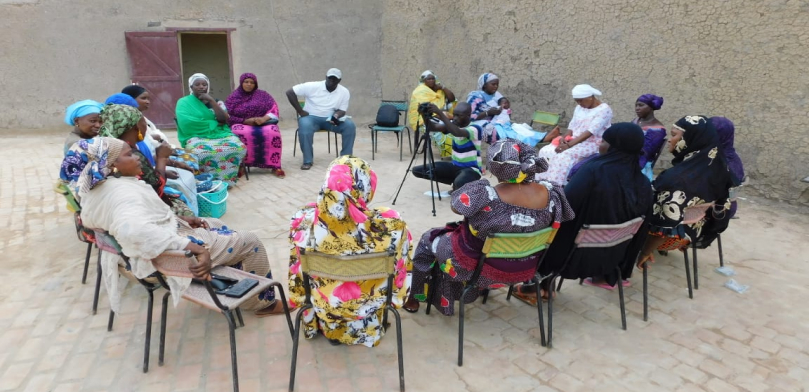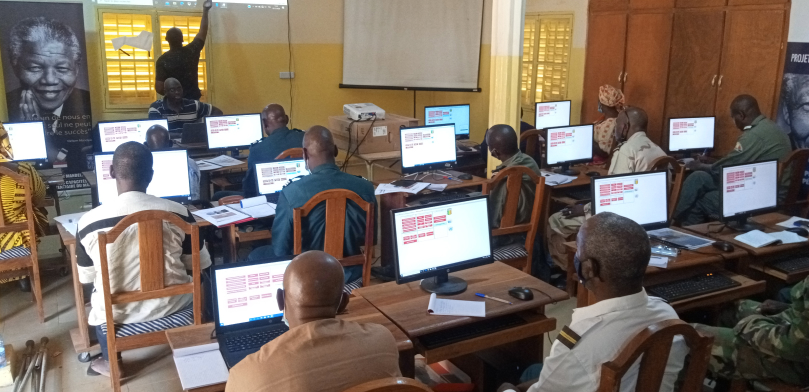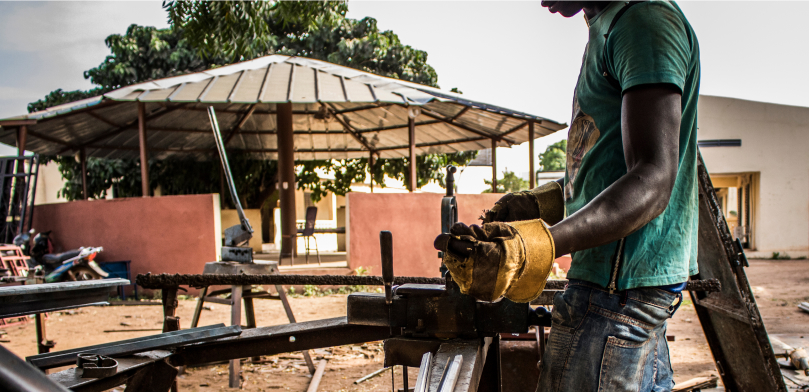Impact by Regions, Countries & Territories
UNDP’s Global Programme supports crisis-affected contexts across all regions to strengthen the rule of law and human rights. In this section, we present five regional overviews, detailing our priorities and approach depending on the context, as well as feature select country and territory results from 2021.
Five contexts from the list (Central African Republic, Democratic Republic of the Congo, Haiti, Mali and Yemen) illustrate the achievements of the Global Focal Point for the Rule of Law (GFP). In peacekeeping missions and transition settings, UNDP’s Global Programme works through the GFP to deliver integrated assistance with our UN partners.
GFP Global Focal Point Highlights
Political
Engagement
The rule of law is essential for sustainable peace and resilient economies, as well as for the prevention or recurrence of conflict. To prevent or address injustice, inequalities or democratic deficits, UNDP works with multiple stakeholders to operate in a way that is consistent with the rule of law and creates opportunities for all individuals to exercise their rights and access justice.
Institution
Building
The importance of strong institutions is more evident than ever as countries and communities respond to disruption, whether because of public health restrictions, climate change or political upheaval. Limitations on public gatherings and travel have revealed the need for institutions that are resilient to disruption.
Community
Security
2021 was a pivotal year that saw various developments affecting peace and security around the world. Civic space continued to shrink and the social contract between states and citizens was increasingly challenged, particularly during and after the response to the COVID-19 pandemic. Facing distressing consequences of climate change, states and communities are forced to manage more cross-border conflicts, triggered by the displacement of people seeking increasingly scarce resources.
Human Rights
Systems
The scope of human rights challenges is widening, from eroded public trust and shrinking civic space to ongoing inequality and human rights impacts in the socio-economic repercussions of the COVID-19 pandemic, and emerging risks in the digital sphere. National human rights institutions (NHRIs), along with other human rights defenders, are facing rising and sophisticated forms of reprisals for carrying out their work.
Access to
Justice
Sustainable Development Goal 16 (Peace, Justice and Strong Institutions) of the 2030 Agenda highlights the importance of access to justice for all for the development of peaceful and inclusive societies. Meaningful access to justice can only be achieved when people know their rights, have the opportunities, agency and capacities to claim them, and have access to independent, inclusive and people-centred justice systems that will respond in a timely, fair and effective manner.
Transitional
Justice
Without justice, there can be no lasting peace. In post-conflict, crisis-affected and fragile contexts, truth-seeking initiatives and reconciliation efforts are essential to bring peace to affected communities. The COVID-19 pandemic has slowed down transitional processes as states prioritized their response to the health crisis and measures to support the economy.
Gender
Justice
In 2021, the continued erosion of democracy and the spread of authoritarian trends in politics in many parts of the world contributed to a backlash against women’s rights. The COVID-19 crisis has reversed some of the hard-won gender parity gains by exacerbating pre-existing inequalities and power imbalances. It has also caused a dramatic increase in sexual and gender-based violence (SGBV). All these challenges have been particularly acute in conflict, fragile and crisis-affected settings.
Innovation
New ideas and new strategies are critical to building sustainable and effective development approaches that really meet people’s needs. Technologies and globalization raise new human rights concerns and threaten the rule of law. Responses to the COVID-19 pandemic continue to limit people’s access to basic services. UNDP connected expertise across the globe to learn and adapt. Creating a culture of curiosity and experimentation, these efforts ensured that local needs and expertise were combined with emerging models to bring strategic thinking to people-centred development goals.

Mali
2021 was another challenging year for Mali. The country continues to face multi-dimensional – security, political and humanitarian – crises together with the impact of the COVID-19 pandemic. A second coup d’état took place in May 2021 leading to the appointment of a new President of the Republic and the establishment of a new transition government. Despite these challenges, UNDP continued the implementation of its new rule of law and conflict prevention programme called “Programme in support to the stabilization of Mali by strengthening the Rule of Law” (PROSMED). This programme links its support to security and justice sectors with conflict prevention, fight against corruption and prevention of violent extremism, and focuses its activities on specific areas of the country to maximize the impact on the population. This programme, which will last until 2025, is implemented through the Global Focal Point for the Rule of Law (GFP) in partnership with UN Women and MINUSMA, and benefits from the support of several financial partners notably Denmark, the European Union (EU), the Netherlands, the Peacebuilding Fund, and Sweden.

To strengthen the accessibility, efficiency and accountability of security and justice actors in Central Mali, the programme finalized the construction of a police station and a district court in Djenné, as well as the establishment of two additional regional and communal security advisory committees (reaching a total of 26 functional committees), which contribute to the restoration of trust between people and security forces. The new police station and district court were inaugurated in November 2021 with the subsequent deployment of 40 police officers and two additional judges. It was the first time that police had been deployed in this area of the country. To strengthen the efficiency of the criminal chain, UNDP facilitated training for 98 magistrates (including 17 women) and 59 security actors (including five women). In addition, 601 community and civil society representatives (including 166 women) were trained and over 180,000 were sensitized (including through community radio programmes) on the role of security and justice actors and the concept of community policing to progressively restore people’s access to and trust in security and justice actors.


The PROSMED programme continued its support to improve the efficiency of the Malian prison system. In 2021, nine more prisons were equipped with the locally developed AGIDERM software (reaching a total of 37 out of 60 prisons), which allows for better management of prisoners. Over 800 detainees saw their detention conditions improved due to rehabilitation of cells, increased access to water, the development of rehabilitation activities and the training of 397 prison staff on Mandela, Bangkok and Beijing rules. Continuous support was provided throughout the year for 162 female prisoners and their 20 babies held in the facilities, including the distribution of hygiene kits. A detainee's guide was developed to provide information on detainees’ rights and duties in places of deprivation of liberty. The guide was translated into four local languages, audio-recorded and distributed in all Malian prisons.
Finally, the programme strengthened the effectiveness and inclusiveness of traditional conflict management mechanisms. These mechanisms play a crucial role in Central Mali given the limited presence of formal security and justice actors.
With UNDP’s support, 335 land commissions were established to manage land disputes before or instead of formal judicial interventions. Over 7,700 local actors were trained on conflict prevention and the functioning of land commissions, and over 8,000 representatives of local authorities were sensitized on gender issues and women’s access to land.
In 2022, UNDP, in partnership with MINUSMA and UN Women, will continue implementing its PROSMED programme. The activities will expand to selected areas of the South in order to help prevent the risks of instability in these areas which are increasingly subject to infiltration by terrorist armed groups. The programme will expand its activities to ensure accountability of security and justice actors. PROSMED will support independent inspection services and civil society actors to monitor the conduct of these actors' risk of corruption and their adherence to human rights standards.
Key Results: Mali
40 police officers and two judges were deployed following the inauguration of a police station and a district court in Central Mali. 554 criminal chain actors (security, justice and penitentiary staff) benefitted from training in Central Mali.
26 regional and communal security advisory committees were established in Central Mali to improve community policing and enhance dialogue between people and security forces to restore trust.
802 detainees (including 162 women and their 20 babies) saw their detention conditions improved due to rehabilitation of cells, increased access to water, the development of rehabilitation activities and the distribution of women and baby care kits.
